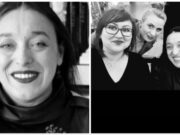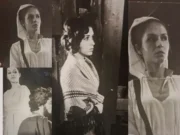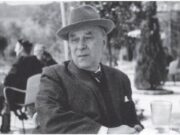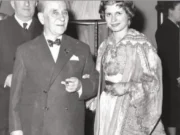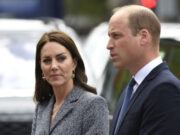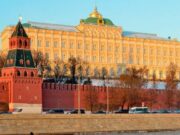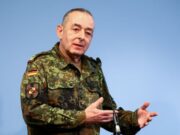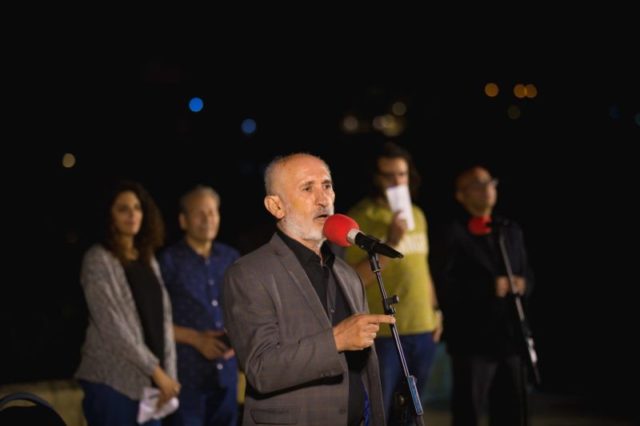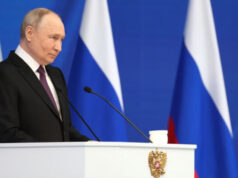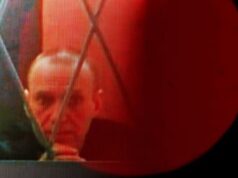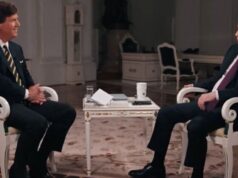R. Beyleri
The idea of this article is to offer a close initial contact with one strong personality, representative of Kosova literature now, placed on the background of Albanian letters in general.
Agim Vinca is a poet, stylist, critic, publicist, university professor and public figure with a tremendous impact on Albanian writing and culture at the turn of the millennium. There is also a particular reason to present him to the Bulgarian public. In Blaga Dimitrova’s collection of poetry and essays “Balkaniada-ada” Agim Vinca recognized the authentic emotional support, not gushing with sentimentality and superficial melodramatic conclusions, and set about translating and promoting the volume, which has seen 3 editions due to his efforts and has enjoyed warm reception both in Kosova and Albania.
An informative presentation of Albanian culture in Kosova has been one of the desiderata of all involved in Balkan studies. For those who can not read Albanian the delightful literary reviews and translations of Robert Elsie are strongly recommendable. Over the past twenty years he has done a lot to introduce Albanian literature from Albania proper, Kosova, Macedonia and of the diaspora to the English-speaking reader. He has published more than 25 books of translations and studies of his own, always supplied with an index of authors and works, full and not selective bibliography, references, chronological lists of literary events .
It must be stressed that unlike most literary histories which are outdated almost by the time they appear, Robert Elsie’s surveys have stand the trial of time, circulating in the Literary Quarterly of the University of Oklahoma “World Literature Today” and on-line with undiminished value of judgment. In the time when poetry is by no means a mainstream preoccupation in the Western world, Robert Elsie has managed to interest the public in Albanian letters. Two of his latest translations are dedicated exclusively to Kosova cultural figures: collection of poet Ali Podrimja’s verse and collection of poetry written by the poet, pediatrician and women’s rights activist Flora Brovina .
In an interview he mentioned that he had finished a new book called Introduction to Albanian Literature. This will be a shorter, more concise and updated version of his two-volume History of Albanian Literature and will be concentrated on the major authors of Albanian literature from the start up to the year 2000. He had also completed an English translation of a collection of Modern Albanian Short Stories, which had been submitted to a publisher in Chicago.
Alexandre Zotos, professor at the University of Saint-Etienne and leading translator has also given impressive contribution to popularizing Albanian literature in French. His latest collection Anthologie de la poesie albanaise. Chambery: La Polygraphe, Edition Comp’Act. 1998. 388 p. includes, besides the wide spectrum of verse, introductory texts to each section and author. The poets are not represented by one or two poems, but by five on average, which enables the reader to better feel the savior of style of each author. Works from Kosova are to be found in chapter nine “D’au-dela les frontiers”, where a selection of contemporary verse production from outside Albania is offered.
Bulgarian readers can enjoy only a limited vision of the Kosova literature through the excellent translation of Rexhep Qosja’s most widely admired novel “Vdekja me vjen prej syve te tille”, Prishtine, 1974 (Death comes from such eyes) . The work’s subtitle is “Thirteen tales which might constitute a novel”.
The protagonist of the novel is a professional writer, living in a surrealistic world of political intrigue and police terror whose life bears clear artistic allusions of the difficlut situation faced by Albanian itellectuals in Kosova. Academic Rexhep Qosja is author of numerous scholarly monographs written in a rich, sholarly enchanting style, among which the recently republsihed three volume History of literature in the Romantic period.
The students of the “Balkan studies” department at the Sofia University have also had the chance to benefit from the expert and eloquent works of the literary critics Rexhep Qosja, Agim Vinca, Sabri Hamiti. Their west-oriented concepts on literary theory and attempts to focus on the national literary heritage as on a structured organism, which must be examined without the optics, values and ideologies of the extra-literary processes, have been widely propagated in the regular course of lectures on Albanian literature.
Initial literary activity in Kosova appeared in the periodical “Jeta e re” (New life) which was founded in 1949 by poet Esad Mekuli (1916-1993). An embryonic Kosova-Albanian literature began to make its presence felt in the fifties and in particular in the sixties. Unimpeded by the ideological constraints which were imposed on culture in Albania during the dictatorship, the literature of Kosova was able to flourish free of artistic dogma. It was thus more experimental and could offer the reader a wider range of styles, subject matter and ideas. The histories of Albanian literature before 1990 did not come in terms with the diverse and creative literature in Kosova, much of which was considered beyond the pale of socialist realism and, though read with pleasure in Albania when available, was rarely commented upon publicity.
At the same time Albanian literature was considered a marginal phenomenon in Yugoslavia, at times tolerated and at times repressed, and was struggling to overcome the isolation and down-sizing as being a product of a neglected national minority. The ethnic conflict faced the intellectual circles in Prishtina with a severe dilemma and actually halted them from becoming a centre of ideologically free national press in exile. In a direct token of patriotism, authors from Albania proper, when banned there, e.g. the classics Gjergj Fishta, Ernest Koliqi or the imprisoned and censored contemporaries, were not republished in Kosova, what seemed to imply indirect collusion with the dictatorial regime.
In 1990 the university, radio, television and many Albanian schools in Kosova were shut down and writers, editors and publishers were forced out of their offices at the state-owned Rilindja Press building in Prishtina, home of all Albanian-language publications in former Yugoslavia. To add to the tormented situation in Kosova, publishing in already democratic Albania ceased at the beginning of the nineties after the introduction of the market economy. The course of events has been gradually improving during the after-war period when overcoming the tacit schism of cultural identity became an obvious priority for the Albanians from the both sides of the border. The foundation of Albanian private publishing houses nation-wide gave new stimulus to modern Kosova literature and criticism and revitalized some previous publications of the classics.
“Is there a poet slumbering in every Albanian?” is the question Robert Elsie rises, referring to the publishing statistics which would certainly indicate a strong preference for verse over prose: half of literary publication in Albania proper and up to 70 -80% in Kosova have been poetry. A plausible explanation, among others, is that verse may be considered a natural outlet for the collective trauma that nation has suffered. This is also the key to the question why the nationalist element is so predominant in the Kosova Albanian writing.
The reader should be aware of the fact that when literary creativity serves the goal of national identity, it is not an implanted and artificial tendency for the Albanian authors, but an inherent belief that springs from the very depth of the heart. My personal conviction supported by personal impressions and experience is that, though some Albanian critics still emphasize patriotism as a criterion of literary merit (a notion quite foreign to Western literature), they are definitely not the driving force which makes poets articulate their feelings for the home-land.
The following section of this paper is dedicated to Agim Vinca, one of the most imaginative poets and critics in Kosova, whose endeavors are successful in being representative of modern Albanian literary production as a whole. For the last thirty years he has published an impressive number of poetry collections and theoretical volumes (the full list is supplied at the end).
Agim Vinca was born in 1947 in the village of Veleshta near Struga, on the Macedonian side of the Ohrid Lake. He studied in Prishtina where he finished his doctorate. He teaches contemporary literature at the University of Prishtina.
Whether there existed or not trends and alternative literary ideas in the post-war Albanian literature, which were in opposition to the official method of socialist realism, is the question which preoccupied Agim Vinca and inspired him to write a study on the Albanian literary alternative. According to him in the literary life of the post-war period in Albania meet two antagonist trends of literary ideas: the liberal trend and the dogmatic trend. Writers which have accepted and supported the first and have opposed the later, are considered by the author representatives of the alternative literary ideas and of the dissidence.
As the most distinguished representatives of this dissidence the author considers following personalities: The poet and the well-known intellectual Sejfulla Maleshova, alias Lame Kodra (1900-1971), which being a minister of culture in the first Albanian post-war government and the first president of the Association of Writers of Albania, engaged for a liberal and pluralist concept in culture. In 1946 Maleshova fell into disgrace, accused of opportunism and spent the rest of his life in poverty and social isolation. Another person is the persecuted writer, the novelist Kasem Trebeshina (b. 1926) who in a letter of his in 1955 (Pro-memoria addressed to the Central Committee of the Albanian Labor Party and to its Head, Enver Hoxha, a letter which became known only four decades later after his release from prison and internment), but also with his literary creativity, mainly unpublished, opposed openly the theory and practice of socialist realism.
The third figure is the greates contemporary Albanian writer, Ismail Kadare (b. 1936), who though a political conformist, was able to ruin the conventions and the rigid normative aesthetics of the time. Another impressive figure is Visar Zhiti (b. 1952), a poignant voice of contradiction. The second chapter “Tradition and portraits” returns to the intellectual leaders of Albania between the two world wars Lugji Gurakuqi, Fan Noli, Gjergj Fishta, Petro Marko and Sterjo Spasse. The third section offers reprints from Agim Vinca’s literary reviews, at which Agim Vinca is a cogent master. The monograph then concludes with an appendix of alternative texts of cultural politics by Sejfulla Maleshova, Kasem Trabeshina, Ismail Kadare and Rexhep Qosja. As R. Elsie aptly notes “His position as an outside observer has enabled him to tackle highly controversial material with presence of mind and with requisite objectivity”
Agim Vinca’s work on the structure of the development of modern Albanian poetry, among others, includes a complete bibliography of Albanian verse in Yugoslavia from 1981 to 1988. His essays on modern classics generally encompass not only Albanian authors, but foreign authors as Rabindranath Tagore, Charles Baudelaire, Federico Garcia Lorca, Yannis Ritsos, Bertolt Brecht etc. His latest monograph on the literary theories includes essays on poetic typology and symbolism.
Poetic translation is a special realm of Agim Vinca’s activities. B. Breht and R. Tagor have been made available to the large public in Albanian due to his efforts (co-translation). At the end of 1999 he translated into Albanian Blaga Dimtirova’s collecion of poems and essays “Balkaniada” dedicated to the war in former Yugoslavia. One could not expect a Bulgarian poet of Blaga Dimitrova’s stature to remain indifferent to an Aeschylian tragedy which has taken place so recently and to which the final act has yet to be written. Agim Vinca achieved perfect cohesion with the author’s way of thinking and original expression.
Agim Vinca’s personal poetic talent enabled him to manifest Albanian as a language of refinement and flowing elegance. Despite of being molded only in 1972 and being closer to the southern Tosk dialect, the standard language should be taken care for as a primary pan-national achievement. This approach of his is taken consciously and conforms to the author’s stance that literature must enhance the standard language in Kosova, where the northern Gheg dialects are spoken. As man of letters Agim Vinca views part of his mission in helping the Albanian language unwrap its full literary and creative potential. What else according to him marks poet’s fate and vocation?
Becoming a poet
To be an oasis in the wilderness,
Not to forget there are many who thirst in this world.
To be a lantern in the darkness,
Not to forget there are many blind in this world.
To be a ship in the waves,
Not to forget the forgotten masses are waiting on the banks.
To say pig to the pig and Socrates to Socrates
And drink your part of the poison.
To write an open letter to the Lord
And list all the sins.
To dig your own grave on the highest mountain peak
And turn into a lightning rod.
[Te jesh poet, from the volume Arna dhe endrra, Prishtina 1987, p. 5, translated from the Albanian by Robert Elsie, and first published in English in An elusive eagle soars, anthology of modern Albanian poetry, London: Forest Books 1993, p. 136]
The original intention of the poet is to achieve an emotional breakthrough of individual, subjective feelings and values as a way of overcoming the intimidation of daily existence. The mind functions in the orderly arrangement of subject matter, actual data penetrate through the flashing images and every detail is a brushstroke of a big picture.
Biography of the root
Who knows when you were born,
In what age, in what place?
Who knows when you sprouted,
On what hill, in what dale?
No one can measure your age,
In years, in seasons.
The teams,
The experts
Search in vain.
You are like life itself.
Your branches,
Twigs,
Buds grow.
Your trunk thickens like a sauce,
You refine the flavour
Without worrying about theories, origins,
Expertise, diagnoses…
A strong root. Stubborn.
Ancient. Young.
Homeland.
[Biografia e rrenjes, from the volume Arna dhe endrra, Prishtina 1987, p. 7, translated from the Albanian by Robert Elsie, and first published in English in An elusive eagle soars, anthology of modern Albanian poetry, London: Forest Books 1993, p. 137]
Many poems would require more detailed explanatory notes to be fully appreciated by a foreign public. Such is the collection Agim Vinca thought over during his imprisonment in 1996 for the absurd “accuse” of going to Albania without an exit visa after the local Serbian authorities had constantly refused to issue one. Other verses give a realistic account of the anguish and hardship of people with clear-cut metaphors.
The hounds of Sodom
First they bite,
Then they bark.
The hounds of Sodom!
A bizarre race.
How can one tell
When they wag their tails
As a sign of friendship;
When they gnash their teeth
As a sign of menace.
First they bite,
Then they bark
(They bite by night,
They bark by day) –
An ancient habit
Of their pedigree.
They treat the living
And the dead the same:
They dig up their bones,
They lick clean their guts.
It’s always the same.
The hounds of Sodom,
A noble race!
[Qente e Sodomes, from the volume Arna dhe endrra, Prishtina 1987, p. 68, translated from the Albanian by Robert Elsie, and first published in English in An elusive eagle soars, anthology of modern Albanian poetry, London: Forest Books 1993, p. 143]
Ballad of the dry mountain
There is a mountain in the south
Between two lakes
They call the Dry Mountain
And no one can tell you
How this mountain
Stays dry surrounded by water
Nearby is a meadow
With the startling name
The Meadow of Tears
And no one can tell you
How this mountain
Stays dry near the tears either
There is a mountain in the south
Between two lakes
They call the Dry Mountain
And no one can tell you
Why this mountain
Always thirsts near the water
Dry Mountain
No grass, no trees, no birds
Dead for the living.
Like a human being
Withered from desire.
[Balade per Malin e Thate, from the volume Arna dhe endrra, Prishtina 1987, p. 16, translated from the Albanian by Robert Elsie, and first published in English in An elusive eagle soars, anthology of modern Albanian poetry, London: Forest Books 1993, p. 140]
Emotion and ideas have always been and integral part of Albanian poetry, but as Robert Elsie rightly observes, “there has been a conspicuous lack of sensuality and lust for life, both in Albania and in Kosova” . Eroticism has never been a prominent feature of Albanian literature at any period and one would be hard pressed to name any Albanian author who has expressed his intimate impulses and desires in verse or prose, besides Mimoza Ahmeti in the nineties. As a critic Agim Vinca is not susceptible to the false moral and concentrates on the true values of poetic expression. As a poet he does not feel the need to challenge the firmly embedded moral norms and rules of Albanian society with the established traditions of ephemeral expression of human feelings.
Had we never met
If we never meet, you and I,
one love less in this world would be
rich in loneliness I would grieve.
If we never meet, you and I,
unreal this night and this sea might
remain, even our lonely lane.
If we never meet, you and I,
this glass of wine in the air would give shelter
just like the hotel and the waiter.
If we never meet, you and I,
our silent game of flammable glances
would be clouded over and fade.
Had we never met, you and I,
this verse would never have dared to fly
from the heart of the poet.
[Po te mos njiheshim, from the volume Dri’, Tirane, 1999, p. 44, translated from the Albanian by R. Beyleri]
Eros and Tanatos frequently match together in the best samples of world poetry. But if Eros is usually the stronger of the gods, the omnipresent Tanatos finds his subtle path to conquer creative imagination.
My dead
First of all my mother died,
Then my sister,
Now recently my father.
I was left motherless,
I was left sisterless,
I was left fatherless.
But we have been reunited
Because I –
Cannot live without them.
I cannot live
Without my dead,
I don’t want to,
I don’t know how.
[Te vdekurit te mi, from the volume Arna dhe endrra, Prishtina 1987, p. 57, translated from the Albanian by Robert Elsie, and first published in English in An elusive eagle soars, anthology of modern Albanian poetry, London: Forest Books 1993, p. 142]
The fact that English is not my mother tongue halts me from venturing into poetic translation, thus limiting this presentation to what has already been successfully conveyed this language. Besides in English, Agim Vinca’s verses are translated in French, German, Polish, Russian, Turkish, Arabic, Vietnamese and Hebrew.
APPENDIX:
List of Agim Vinca’s poetry collections and theoretical works:
1. FENIKSI (Phoenix, poetry, 1972)
2. BREGU I MALLIT (The bank of nostalgia, poetry, 1975)
3. NE VEND TE BIOGRAFISE (In lieu of a biography, poetry, 1977)
4. ASPEKTE TE KRITIKES SONE (Aspects of literary criticism, study, 1977)
5. QASJE (Meeting, criticism, 1980)
6. BUZEDRINAS (Inhabitant of the Lower Drin, poetry, 1981, republished in Tirana in 1984)
7. STRUKTURA E ZHVILLIMIT TE POEZISE SE SOTME SHQIPE (1945-1980) (The structure of the development of modern Albanian poetry, historical-literary monograph, 1985)
8. IZ SAVREMENE ALBANSKE POEZIJE U JUGOSLAVIJI. (Contemporary Albanian poetry in Yugoslavia, anthology, Sarajevo 1985)
9. ARNA DHE ENDRRA (Patches and dreams, poetry, 1987)
10. ORET E POEZISE (The Muses of poetry, essays and studies, 1990)
11. POPULLI I PANDALUR (The unimpeded people, publicism, 1992)
12. ALTERNATIVA LETRARE SHQIPTARE (Albanian literary alternative, essays and studies, 1995)
13. KOHE E KEQE PER LIRIKEN (Bad times for lyrics, poetry, 1997)
14. SHQIPTARET MES MITIT DHE REALITETIT (Albanians between the myth and reality, publicistics, 1997)
15. STRUKTURA E ZHVILLIMIT TE POEZISE SHQIPE. (The structure of the development of modern Albanian poetry, second revised edition, 1997)
16. DRI’ (Dri’, Selected poetry, Tirane, 1999).
17. SONET I VETMUAR. (A lonely sonnet, old and new poetry, Tirane 2001
18. KURS I TEORIVE LETRARE (A course of literary theories, theoretical work, Prishtine, 2002. (Republished in Shkoder, 2002 under the title PANTEONI I IDEVE LETRARE – Pantheon of literary ideas).


